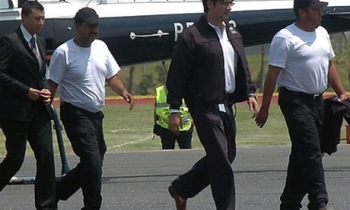SEATTLE (AP) -- With subscribers canceling and ad revenues sliding, editors gathering this week were hunting ways to harness the Internet's power to lure back readers and win over those who've never picked up a print edition.
Despite the gloomy statistics, panelists at the American Society of Newspaper Editors' annual meeting insisted that news of the newspaper's imminent demise has been greatly exaggerated.
Steven T. Gray, managing director of Newspaper Next, a project led by the American Press Institute, pointed to reasons to buck up, especially the hearty appetite non-newspaper readers have for news -- which a growing number of people are getting from the Web or through cell phones, personal digital assistants and e-mail.
The dilemma is how to pay for the gathering of all that electronic news, much of which is free.
"There is no bigger problem today than the fact that we're not getting paid for online news," said William Dean Singleton, vice chairman and CEO of MediaNews Group Inc., which announced a deal this week to add four newspapers to the 40 it already owns. "If we can't get paid for it, we aren't going to be able to continue to afford to do it."
The American Press Institute is part way through a yearlong project to help the newspaper industry embrace a more diversified business model, one that relies on a broader mix of products targeting a wider array of readers.
"We're watching our audience slip away," Gray said. "There's a lot of fear, and there's a lot of depression, and I think a lot of denial in our industry, because we want it to be the way it used to be."
With the struggle for new readers and the pressure to deliver news in new formats comes the latest version of the longtime tension between paying the bills and paying for good journalism.
"All of us are scrambling to try to serve the Internet audience," said Marilyn Thompson, editor and vice president of the Lexington Herald-Leader in Kentucky, who said "cataclysmic changes" of recent years have forced hiring freezes, dried up training money and shrunk the news space in many papers. "The bottom line to me is that good journalism matters and will always matter," she said Thursday.
Gray said some skeptics have suggested that newspapers will wind up dumbing down the news and abandoning their civic duty to be watchdogs if they focus too much on pulling in people who don't read newspapers.
"When we have to admit that more than half the public is no longer regularly using newspapers, our civic mission is already in grave danger," Gray said. "The most important thing we can do to continue fulfilling that is to find ways to re-engage with that missing half of the audience."
Gary Pruitt, chairman, president and chief executive of McClatchy Co., predicted that newspapers will continue to see an erosion in their print readership and must seize on the explosive growth in local search, led by Google Inc.
Newspaper budgets have taken a huge hit from a decline in print classified ad sales, as Web sites like craigslist.com and Monster.com have become more popular. An encouraging sign, Singleton noted, is that many newspapers have started to recoup some of that lost revenue through online classified ads.
Singleton suggested that newspapers should team up to offer some sort of collective national Internet search engine to compete with Google, Yahoo Inc., and Microsoft Corp.'s MSN. Either that or land revenue-sharing partnerships with the online search leaders.
Singleton argued that analysts and reporters who cover the newspapers are buying into a misguided notion that the industry is dying, when it's simply in a "cyclical downturn."
"This will be a great business in three or four years," when companies like General Motors Corp. and Ford Motor Co. pull out of a slump that has cut deeply into newspapers' ad revenues, Singleton said.
McClatchy, based in Sacramento, Calif., owns a dozen daily papers, including the Sacramento, Fresno and Modesto Bees, and is in the process of buying Knight Ridder Inc. MediaNews owns The Denver Post and about 40 other newspapers. On Wednesday, MediaNews announced plans on Wednesday to buy four Knight Ridder papers McClatchy is selling off.
Pruitt harkened back to 1919, when the number of daily newspapers in the U.S. peaked. It was also the year of the first commercial radio broadcast.
"Radio emerges, and television emerges, and everyone thinks it's the death of newspapers. Well, you know, it wasn't. It was the death of about half the newspapers, and a lot of newspapers went broke. But the lucky hardy ones survived," Pruitt said.









